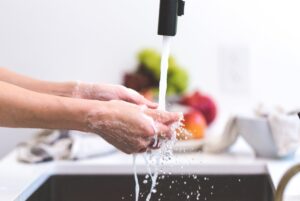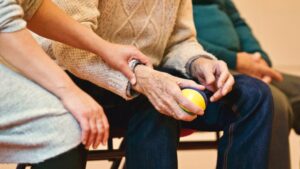Corona Virus Help
Helping to reduce the spread of COVID-19
There are many tests being created to help reduce and contain the outbreak of the new COVID-19 coronavirus.
With the latest events, post, and news broadcast, there is enough evidence that we need an efficient system put in place to immediately help determine, who should be tested, or the location test centers should be focused or installed in various states and cities throughout the United States of America
Using our technical resources, Bridge Da Gap has stepped to the plate to help facilitate this need. We have developed a simple form to collect and disseminate this information to the appropriate parties to help determine location, and severity of symptoms of potential coronavirus patients. This information can be collected and sent in various formats to help Organizations such as the CDC, WHO, and other Agencies involved in helping the United States quickly surpass this pandemic.
Clean your hands often
From the CDC.gov
Wash your hands often with soap and water for at least 20 seconds, especially after blowing your nose, coughing, or sneezing; going to the bathroom; and before eating or preparing food. If soap and water are not readily available, use an alcohol-based hand sanitizer with at least 60% alcohol, covering all surfaces of your hands and rubbing them together until they feel dry.
Soap and water are the best option if hands are visibly dirty. Avoid touching your eyes, nose, and mouth with unwashed hands.
What to do if you are feeling sick?
If you think you have been exposed to COVID-19 and develop a fever and symptoms, such as cough or difficulty breathing, call your healthcare provider for medical advice.

What others can do to support older adults
Community support for older adults 
- Community preparedness planning for COVID-19 should include older adults and people with disabilities, and the organizations that support them in their communities, to ensure their needs are taken into consideration.
- Many of these individuals live in the community, and many depend on services and supports provided in their homes or in the community to maintain their health and independence.
- Long-term care facilities should be vigilant to prevent the introduction and spread of COVID-19. Information for long-term care facilities can be found here.
Family and caregiver support
- Know what medications your loved one is taking and see if you can help them have extra on hand.
- Monitor food and other medical supplies (oxygen, incontinence, dialysis, wound care) needed and create a back-up plan.
- Stock up on non-perishable food to have on hand in your home to minimize trips to stores.
- If you care for a loved one living in a care facility, monitor the situation, ask about the health of the other residents frequently and know the protocol if there is an outbreak.
Bridge DA Gap

